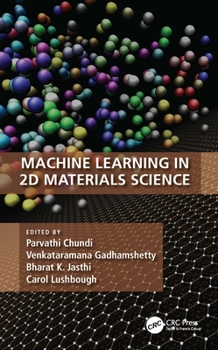Machine Learning in 2D Materials Science
Data science and machine learning (ML) methods are increasingly being used to transform the way research is being conducted in materials science to enable new discoveries and design new materials. For any materials science researcher or student, it may be daunting to figure out if ML techniques are useful for them or, if so, which ones are applicable in their individual contexts, and how to study the effectiveness of these methods systematically.
KEY FEATURES
Provides broad coverage of data science and ML fundamentals to materials science researchers so that they can confidently leverage these techniques in their research projects Offers introductory material in topics such as ML, data integration, and 2D materials Provides in-depth coverage of current ML methods for validating 2D materials using both experimental and simulation data, researching and discovering new 2D materials, and enhancing ML methods with physical properties of materials Discusses customized ML methods for 2D materials data and applications and high-throughput data acquisition Describes several case studies illustrating how ML approaches are currently leading innovations in the discovery, development, manufacturing, and deployment of 2D materials needed for strengthening industrial products Gives future trends in ML for 2D materials, explainable AI, and dealing with extremely large and small, diverse datasetsAimed at materials science researchers, this book allows readers to quickly, yet thoroughly, learn the ML and AI concepts needed to ascertain the applicability of ML methods in their research.
Format:Hardcover
Language:English
ISBN:0367678209
ISBN13:9780367678203
Release Date:November 2023
Publisher:CRC Press
Length:238 Pages
Weight:1.16 lbs.
Dimensions:0.6" x 6.1" x 9.2"
Customer Reviews
0 rating





